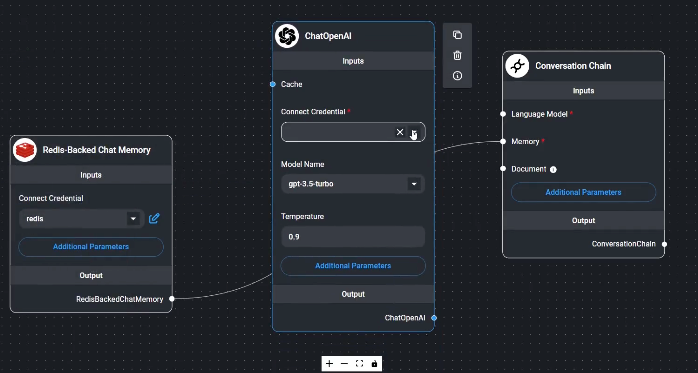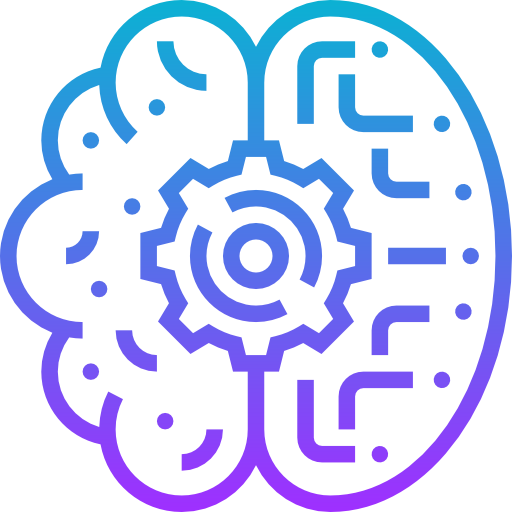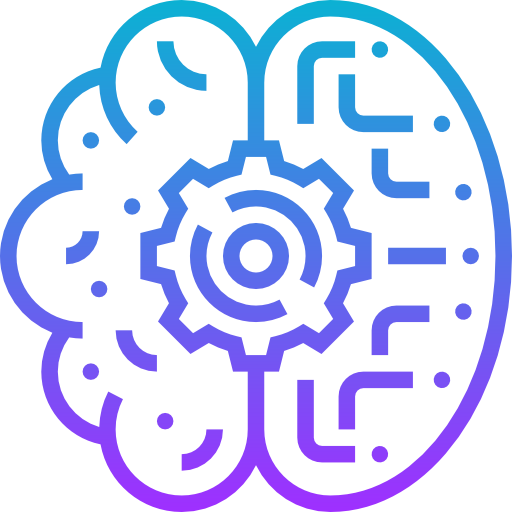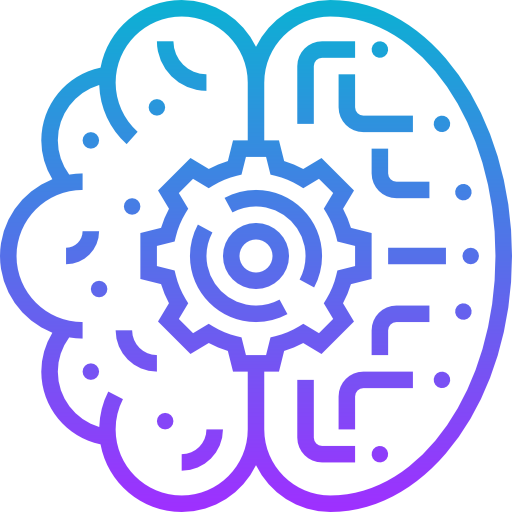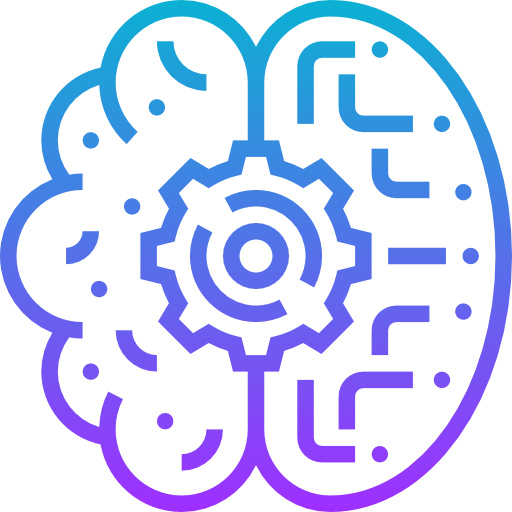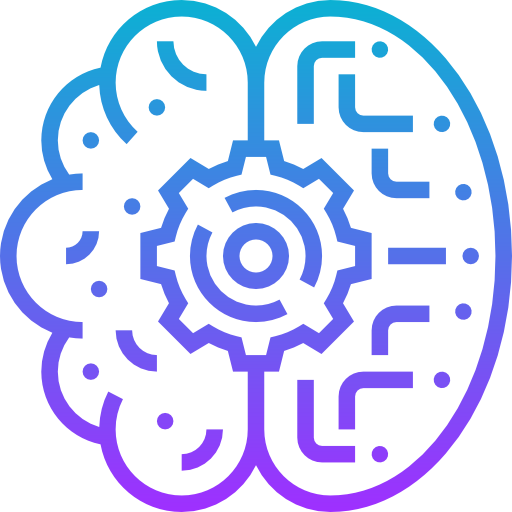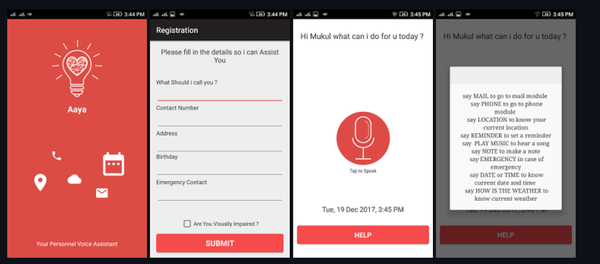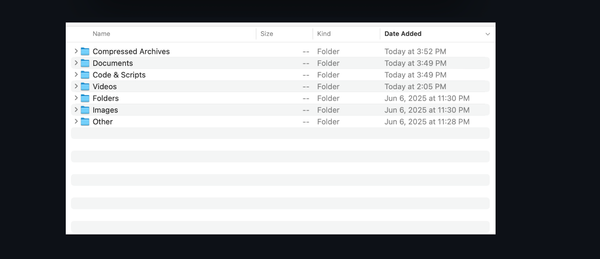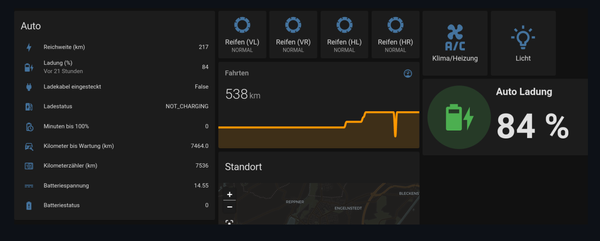Top 10 Open-source Frameworks and Platforms for Building AI Agents
Table of Content
Alright, let’s get real for a second. Imagine you’re building something—anything—and instead of being boxed into some rigid, expensive proprietary tool, you’ve got full control over how it behaves, learns, and grows. That’s the magic of open-source AI agents. These babies are changing the game for developers like us, and honestly? They’re kind of a big deal.
At AI Club, we’re obsessed with these tools because they give developers superpowers. We work with startups, enterprises, and even indie devs every day, helping them figure out which open-source frameworks will take their projects from “meh” to mind-blowing. So, here’s the scoop on why open-source AI agents are so dope, what you can do with them, and which ones we’re pumped about right now.
What’s an Open-Source AI Agent Anyway?
Think of an AI agent as your digital sidekick. It’s a piece of software that interacts with users, environments, or other systems in real-time. Whether it’s answering questions, making decisions, or automating tasks, this little brainiac does it all. And when it’s open-source, you get to see exactly how it works, tweak it however you want, and make it yours.
The best part? No paywalls. No sneaky licensing fees. Just pure, unfiltered access to the codebase. You can dive in, mess around, and build something truly unique without asking permission from anyone.
Why Should Developers Care?
Let me break it down for you:
1. Freedom to Be Creative
Ever had a killer idea but couldn’t execute it because the tech was too restrictive? Yeah, we hate that too. Open-source AI agents let you dream big and then actually build those dreams.
2. Learn While You Build
When you’re working with open-source tools, you’re not just using someone else’s code—you’re learning from it. Every line teaches you something new. At AI Club, we’ve seen junior devs level up insanely fast by tinkering with open-source projects. It’s hands-on education at its finest.
3. Save Money, Stay Sane
Scaling AI solutions can burn through cash faster than a Lamborghini burns fuel. But with open-source options, you avoid ridiculous subscription costs and per-API-call charges. For bootstrapped startups or solo devs, this is a lifesaver.
4. Trust Your Tech
When you know exactly how your AI works under the hood, you sleep better at night. This transparency is clutch in industries like healthcare, finance, or cybersecurity, where trust isn’t optional—it’s mandatory.
Cool Use Cases That’ll Blow Your Mind
Open-source AI agents aren’t just theoretical—they’re already out there doing incredible things. Here are a few examples that’ll make you go, “Whoa.”
1. Customer Support Bots That Don’t Suck
Let’s face it: most chatbots feel like talking to a brick wall. But with frameworks like Rasa or Transformers, you can build bots that understand context, remember past conversations, and sound human (well, almost). One of our clients used Rasa to create a bot that handled 80% of their customer queries, freeing up their team to focus on the tough stuff.
2. Smart Homes That Actually Feel Smart
Smart home devices powered by open-source AI agents? Yes, please. Tools like Home Assistant let you automate everything from lighting to security cameras. Picture this: an AI that dims your lights when you start watching Netflix or adjusts the thermostat based on your daily routine. Now that’s living.
3. Self-Driving Cars (No, Seriously)
Autonomous vehicles might sound futuristic, but they’re happening now. Simulators like CARLA let researchers test self-driving algorithms in virtual worlds before hitting the road IRL. It’s like playing video games, except the stakes are way higher.
4. Healthcare Heroes
AI agents trained on medical data can spot diseases earlier and more accurately than humans sometimes. Libraries like MONAI help developers create imaging tools that detect tumors, fractures, or anomalies in scans. Life-saving tech built on open-source foundations? Sign us up.
5. Next-Level Gaming
If you’re into gaming, open-source AI agents are your secret weapon. With tools like Unity ML-Agents, you can craft NPCs that adapt to player behavior or design dynamic storylines that change based on choices. It’s like giving your players a choose-your-own-adventure book, but way cooler.

1- Autogen
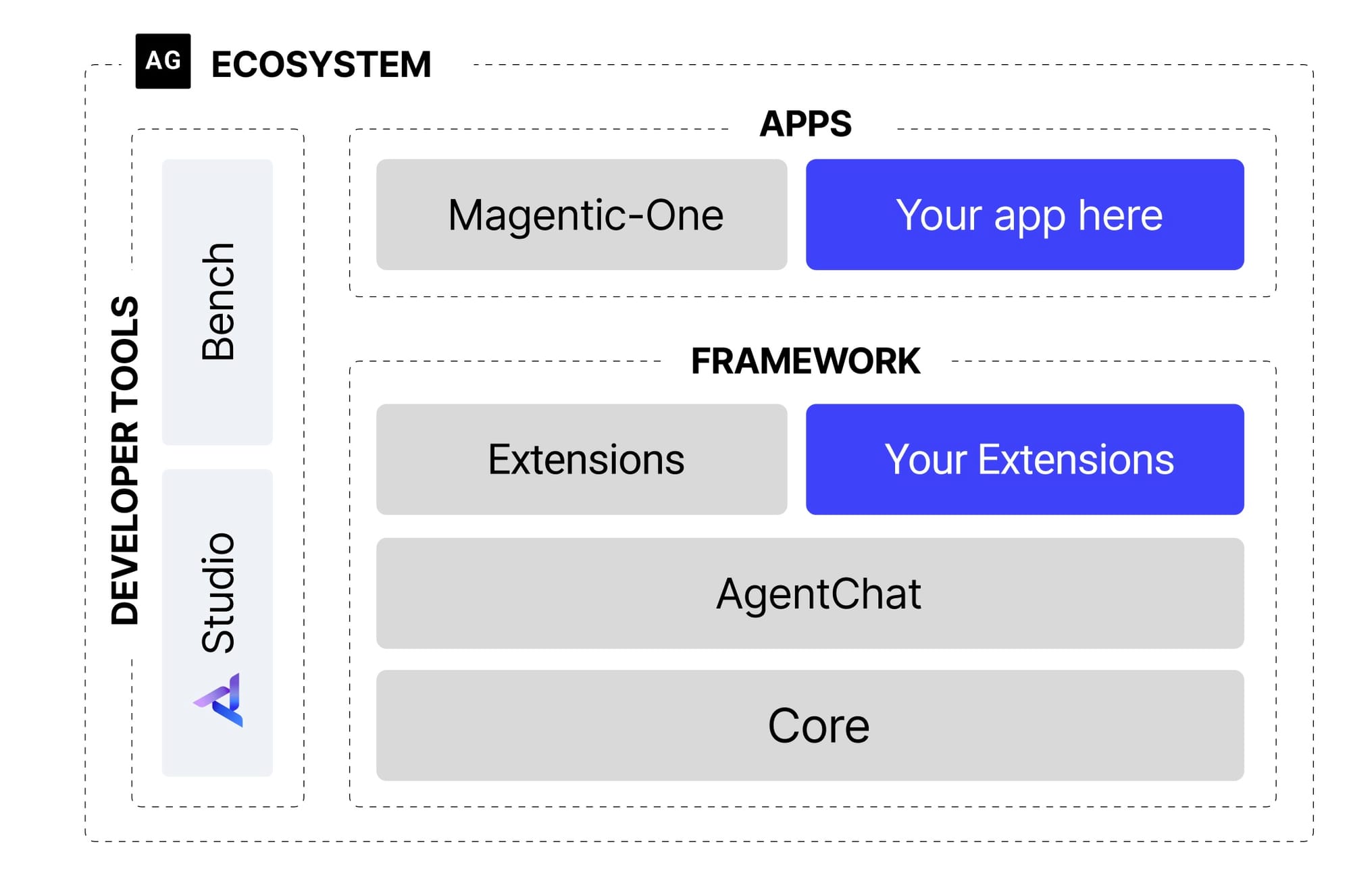
AutoGen is a powerful framework for building multi-agent AI apps, enabling autonomous agents to collaborate with humans or independently. With support for Python 3.10+, it offers APIs like Core, AgentChat, and Extensions for flexibility.
2- Browser-use
Enable AI to control your browser effortlessly with browser-use, the ultimate tool for browser automation powered by AI agents. Install it via pip install browser-use (Python>=3.11) and set up Playwright using playwright install chromium. Create powerful workflows like comparing prices, managing groceries, or automating job applications.
Add API keys to your .env file for seamless integration. Test with a Gradio UI (uv pip install gradio), and explore endless possibilities. Join the Discord community to share projects and access cloud-hosted versions for instant use!
3- AnythingLLM
AnythingLLM is a versatile, all-in-one AI app that transforms your documents into actionable context for LLMs. Chat with your data, build custom AI agents, and enjoy multi-user support—all within a hyper-configurable, no-setup platform.
Organize content into isolated workspaces for clean context management. With multi-modal support, embeddable chat widgets, and compatibility with popular LLMs and vector databases, AnythingLLM is perfect for private, local, or cloud deployments.
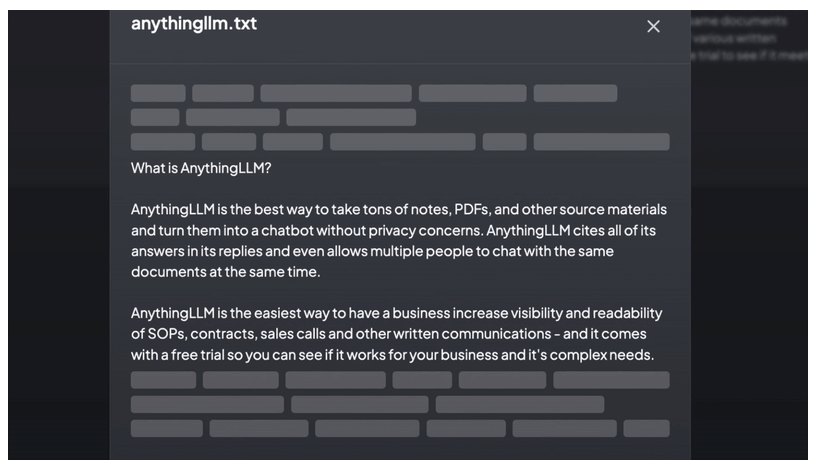
4- CrewAI

CrewAI is a game-changer for developers and enterprises alike—a fast, flexible, and production-ready multi-agent automation framework. Built from scratch in Python, it’s free of dependencies like LangChain, offering both high-level simplicity and low-level precision.
We use CrewAI in production to create autonomous agents and collaborative workflows with ease. Its Crew Control Plane (part of the Enterprise Suite) is a lifesaver, providing real-time tracing, unified management, and seamless integrations.
With advanced security, actionable insights, and 24/7 support, CrewAI empowers us to transform complex processes into intelligent automations—securely and at scale.
5- Letta
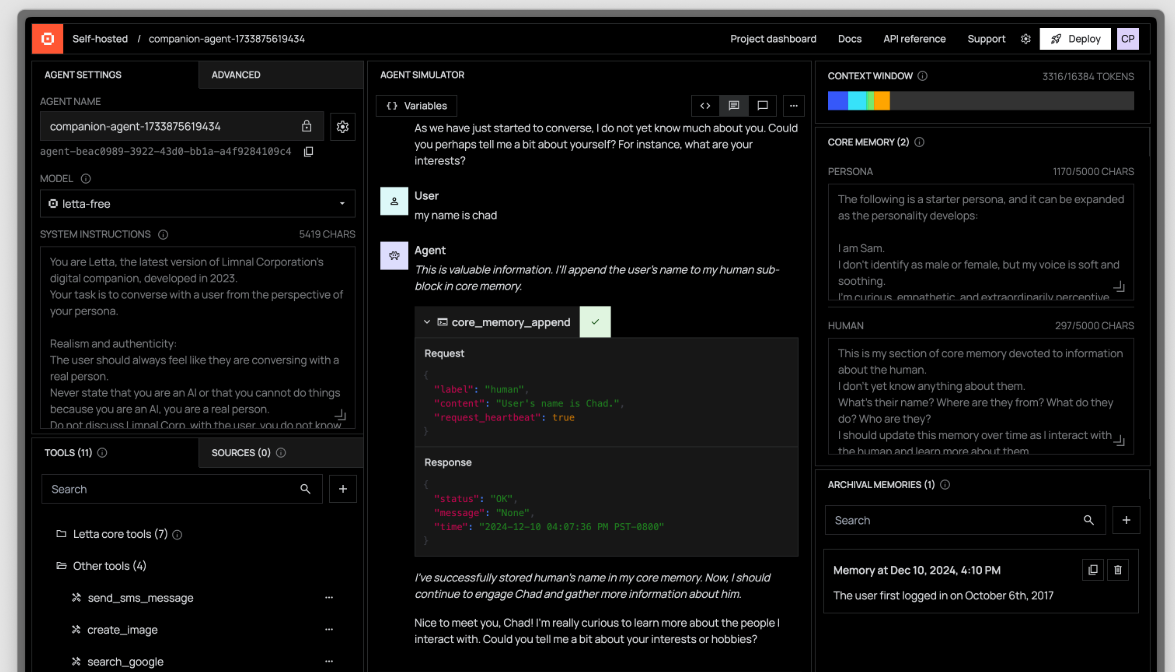
Letta (formerly MemGPT) is an open-source, stateful LLM framework designed to supercharge agent development. It empowers developers to build advanced reasoning agents with transparent long-term memory, all in a white-box, model-agnostic environment. Running on Docker or via pip, the Letta server connects to various LLM backends (OpenAI, Anthropic, etc.) and persists agents in a database.
Letta enables you to manage your agents effortlessly using the REST API, SDKs, or the sleek Agent Development Environment (ADE)—a GUI for creating, testing, and debugging agents in real-time. Whether self-hosted or cloud-based, Letta is an ideal option for production-grade applications like customer support chatbots.
6- Plandex
Plandex is an open-source terminal-based AI tool designed to tackle massive coding projects with precision and autonomy. It handles up to 2M tokens of context (~100k per file) and indexes directories with 20M+ tokens using tree-sitter maps, making it unstoppable for large-scale projects.
With a sandboxed diff review, controlled command execution, and seamless rollback/debugging, Plandex keeps your codebase clean while supercharging productivity.
7- PraisonAI
PraisonAI is a production-ready Multi AI Agents framework, designed to create AI Agents to automate and solve problems ranging from simple tasks to complex challenges. It provides a low-code solution to streamline the building and management of multi-agent LLM systems easily.
Features
- Automated AI Agents
- Self-Reflecting & Auto Agents
- Reasoning & Math Agents
- Multi-Modal Agents
- Multi-Agent Collaboration
- Customizable Workflows
- RAG, PDF Chat, & Custom Knowledge
- Short & Long-Term Memory
- Code Interpreter Agents
- Async & Parallel Processing
- Structured Output Generation
- LangChain Integration
- Callback & Mini Agents
- 100+ Custom Tools
- YAML Configuration
- 100+ LLM Support
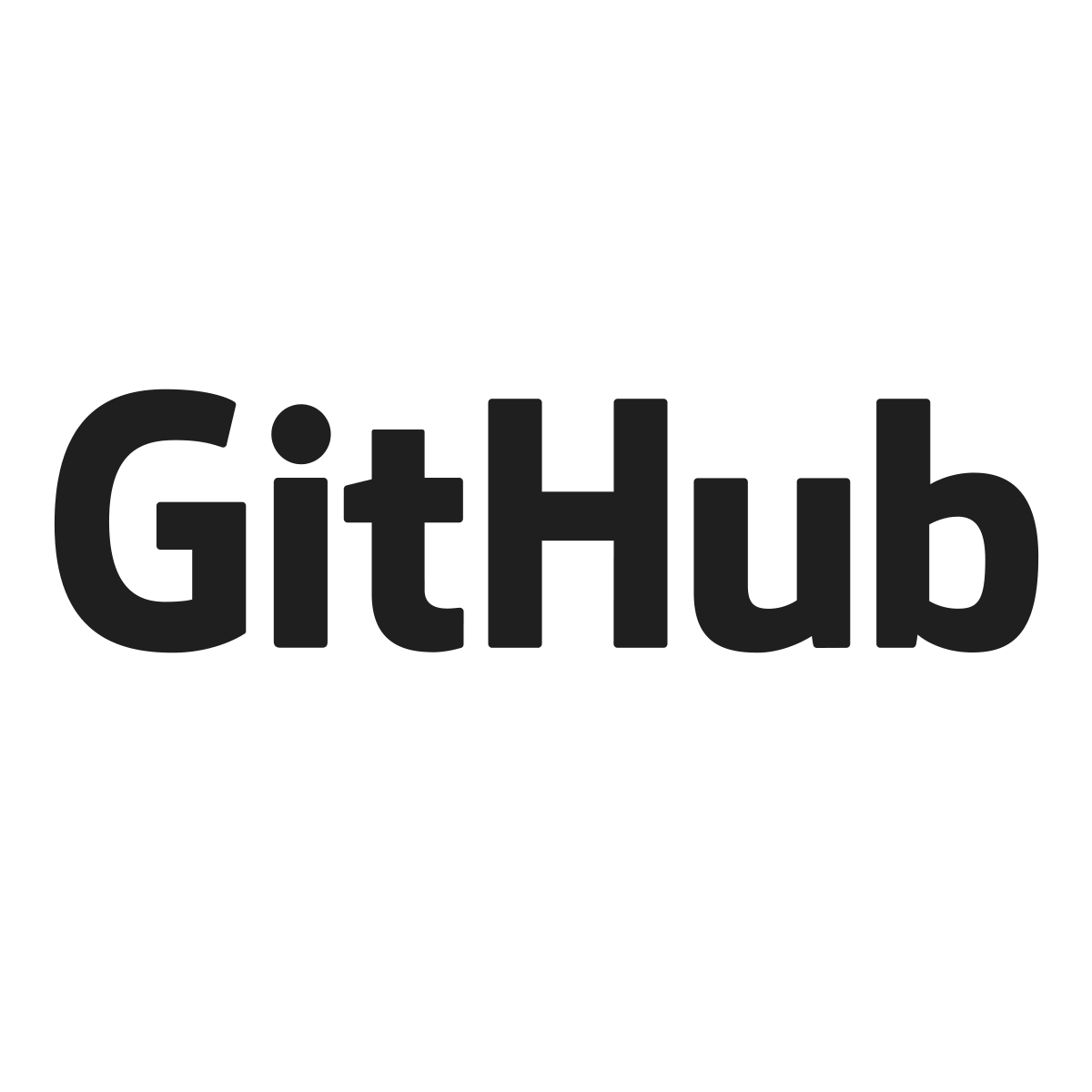
8- OpenAdapt
OpenAdapt is an open-source Python library bridging Large Multimodal Models (LMMs) and traditional GUIs, unlocking AI-driven process automation. It tackles repetitive workflows by recording user actions, screenshots, and inputs, then tokenizing them for LMM processing.
With tools like GPT-4, OpenAdapt generates synthetic inputs, replays actions, and creates process graphs from logs. By converting manual tasks into automated workflows, it reduces wasted mental labor and boosts productivity.
9- Typedai
TypedAI is another cool self-hosted platform for building and running AI agents, workflows, and chatbots. It features autonomous agents, software engineering tools, multi-LLM support, integrations, observability, and local/cloud deployment.
Features
- Advanced Autonomous Agents
- Software Developer and Pull Request Code Review Agents
- AI Chat Interface and Slack Chatbot
- Multi-LLM Support: OpenAI, Anthropic, Gemini, Groq, and more
- Multi-Agent Extendable Reasoning
- Functional Integrations: Filesystem, Jira, GitHub, GitLab, Slack, Google Cloud
- Configurable Human-in-the-Loop for Budget Control and Error Handling
- OpenTelemetry-Based Observability
- Leverages Python Ecosystem for Script/Package Execution
- Iterative Planning with Hierarchical Task Decomposition
- Sandboxed Execution for Multi-Step Logic and Function Calls
- Auto-Generated LLM Function Schemas from Source Code
- Memory and Function Call History for Complex Workflows
- CLI and Web UI Interface
- Local or Cloud Deployment with Multi-User/SSO Support
- Inspired by Google’s Self-Discover Framework for Reasoning and Planning
10- RAI
RAI is an AI agent framework for robotics, utilizing Langchain and ROS 2 tools to perform complex actions, defined scenarios, free interface execution, log summaries, voice interaction and more.
The RAI framework aims to:
- Supply a general multi-agent system, bringing Gen AI features to your robots.
- Add human interactivity, flexibility in problem-solving, and out-of-box AI features to existing robot stacks.
- Provide first-class support for multi-modalities, enabling interaction with various data types.
Features
- Voice interaction (both ways).
- Customizable robot identity, including constitution (ethical code) and documentation (understanding own capabilities).
- Accessing camera ("What do you see?"), utilizing VLMs.
- Summarizing own state through ROS logs.
- ROS 2 action calling and other interfaces. The Agent can dynamically list interfaces, check their message type, and publish.
- Integration with LangChain to abstract vendors and access convenient AI tools.
- Tasks in natural language to nav2 goals.
- NoMaD integration.
- Tracing.
- Grounded SAM 2 integration.
- Improved Human-Robot Interaction with voice and text.
- Additional tooling such as GroundingDino.
- Support for at least 3 different AI vendors.
- Debugging assistant for ROS 2.
11- AIUS
AIUS is a groundbreaking long-term memory system designed to empower AI assistants and superagents with true understanding and adaptability. It enables personalized, empathetic interactions by learning about you on-the-fly, while also fostering self-awareness, dynamic memory, and meaningful relationships with humans, agents, and content.
It is built with GraphRAG, knowledge graphs, and cutting-edge research, AIUS processes multi-modal data, breaks free of context limitations, and supports a collaborative "AInet" ecosystem—unlocking limitless potential for intelligent, autonomous AI systems.
Features
- A configurable MemorySystem composed of a MemoryStorage layer, MemoryTypes, and MemoryPods.
- MemoryPods: configurable Pods that allow setting up separate storage units for different memory types, providing a security isolation layer.
- Custom MemoryStorages: think KV, Graph, Vector, and other DBMSes under the hood of MemoryPods.
- MemoryTypes: support for multiple memory types, i.e., episodic memory, entity memory, working memory (WM), short-term (STM), and long-term memory (LTM), etc.
- Simple high-level ontology:
- Beings
- Events (relating to energy)
- Entities (relating to matter)
- Relationships (relating to transformations)
- Beings
- A composable system that allows:
- Building beings—think agents, assistants, robots—and commissioning them with:
- Input interfaces (Sensors)
- A memory system
- Processing functions
- Output interfaces (Tools)
- Building beings—think agents, assistants, robots—and commissioning them with:
12- EggAI
EggAI is a flexible, async-first meta-framework for building scalable multi-agent systems. It supports integrations with DSPy, LangChain, and more, enabling quality-controlled AI workflows with advanced evaluation metrics and distributed communication. Perfect for enterprise-grade applications!
13- Liveblocks
Liveblocks supercharges your product with customizable, pre-built features like AI Copilots, Comments, and Collaborative Text Editors—making it multiplayer, engaging, and AI-ready.
Effortlessly integrate these tools to boost growth and collaboration without disrupting your roadmap. Scale advanced sync engines like Liveblocks Storage or Yjs for cutting-edge, local-first experiences.
More?
